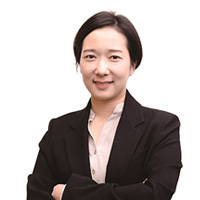[Herald Interview] Gwangju mayor strengthens city's heritage to promote it globally
Gwangju city to host International World Association for Symphonic Bands and Ensembles Conference July 16-20
By Park YunaPublished : July 10, 2024 - 16:03

A native of Gwangju, Gyeonggi Province, Bang Se-hwan took the office of Gwangju mayor in 2022. Asked about the characteristics of the city, Bang, who has lived in the city his whole life, stressed its history.
“Gwangju has a very beautiful nature that has been maintained throughout its 1,000-year history. The city was named ‘Gwangju’ in 940 by King Taejo of Goryeo (918-1392),” Bang said during an interview with The Korea Herald on Friday at the city hall.
Gwangju in Gyeonggi Province is a city with a population of some 400,000 people. Surrounded by mountains, it is home to Namhansanseong, a historic fortress from the Joseon era that functioned as an emergency capital during times of war. It was designated as a UNESCO World Heritage Site in 2014.
Relatively lesser known is the fact that the city produced white porcelain for the Joseon royal court. In 1467, the kilns of Gwangju were designated as suppliers of high-quality white porcelain to the royal court.
Three porcelains produced in the city during the Joseon era are on display at the mayor's office: Two white porcelains from the 15th and 17th centuries produced in Toechon town and Chowol town in Gwangju and a moon jar, the traditional moon-shaped white porcelain.

WASBE 2024 and Royal Ceramic Conference
Bang's deep knowledge of the city's cultural heritage naturally led him to want to share the rich heritage with the world. As part of the efforts, he pushed for hosting the 20th International WASBE Conference in the city as soon as he became mayor two years ago, Bang said.
The World Association for Symphonic Bands and Ensembles, or WASBE, is the sole international organization of wind bands and ensembles dedicated to enhancing the quality of such groups.
World Association for Symphonic Bands and Ensembles 2024 will be held in Gwangju from July 16 to 20, with two main performances held every day at the Namhansanseong Art Hall. A total of 13 teams from eight countries – South Korea, US, Germany, Spain, France, Australia, Taiwan and Singapore – will perform at the art hall.
Bang said he is a big fan of music and played the trombone in a band as a teenager.
“Wind instruments have their own charm. The sound is magnificent when played in an orchestra but they also sound quite mellow and calm depending on the music piece,” he said.
Inaugurated in 1981 in Manchester, UK, WASBE takes place every two years. The last gathering took place in Prague, Czech Republic in 2022. The last time the event took place in Asia was in 2011 when it was hosted by Taiwan. Other Asian cities where the event has taken place are Singapore in 2005 and Hamamatsu, Japan in 1995.
“We expect around 30,000 people from 30 countries to visit the city, including some 2,000 musicians and academics in the field,” the mayor said.
Two or three fringe concerts will be performed every day by 29 teams from home and abroad. The city will also host a K-Music concert on July 14 at the City Hall, joined by K-pop groups and artists such as STAYC, Golden Child, Kwon Eun-bi and Lee Mu-jin.
To promote white porcelain from the city, Gwangju hosted the 27th Gwangju Royal Ceramic Conference in May at Gwangju Gonjiam Ceramics Park, bringing together ceramists and experts from Hungary, Thailand, China, Japan and South Korea.
Among the porcelain brands presented at the conference was Herend Porcelain, a Hungarian luxury hand-painted porcelain manufacturer. The brand’s dinnerware was given to UK Prince William and Kate Middleton as Hungary’s official wedding gift, according to the brand.
“We wanted to shed light on the city’s ceramic history inspired by the fact that the small town called ‘Namjong’ in northern Gwangju had a kiln site designated by a king in the Joseon era to produce high-quality white porcelain to be used by the royal family.
“As a mayor, I want to strengthen the city’s historic and cultural heritage and present them better at home and promote them globally,” he said.
Since getting into office, Bang has been reminding himself of the hanja 4-character idiom "gonghaenggongban" -- meaning if there is nothing done, nothing comes back in return -- as it teaches how to act first is important, he said.
"If you do not act, you get nothing. If you do not try, there is nothing you lose or fail. You have to give it a try first, then you get a clue to the next step, whether it is a failure or success," he said.





![[Herald Interview] How Gopizza got big in India](http://res.heraldm.com/phpwas/restmb_idxmake.php?idx=644&simg=/content/image/2024/11/20/20241120050057_0.jpg&u=20241120164556)

![[KH Explains] Dissecting Hyundai Motor's lobbying in US](http://res.heraldm.com/phpwas/restmb_idxmake.php?idx=644&simg=/content/image/2024/11/20/20241120050034_0.jpg&u=)

![[Kim Seong-kon] Farewell to the vanishing John Wayne era](http://res.heraldm.com/phpwas/restmb_idxmake.php?idx=644&simg=/content/image/2024/11/19/20241119050096_0.jpg&u=)
![[Graphic News] 70% of S. Koreans believe couples can live together without tying the knot: survey](http://res.heraldm.com/phpwas/restmb_idxmake.php?idx=644&simg=/content/image/2024/11/19/20241119050098_0.gif&u=)







![[Today’s K-pop] Blackpink’s Jennie, Lisa invited to Coachella as solo acts](http://res.heraldm.com/phpwas/restmb_idxmake.php?idx=642&simg=/content/image/2024/11/21/20241121050099_0.jpg&u=20241121172748)